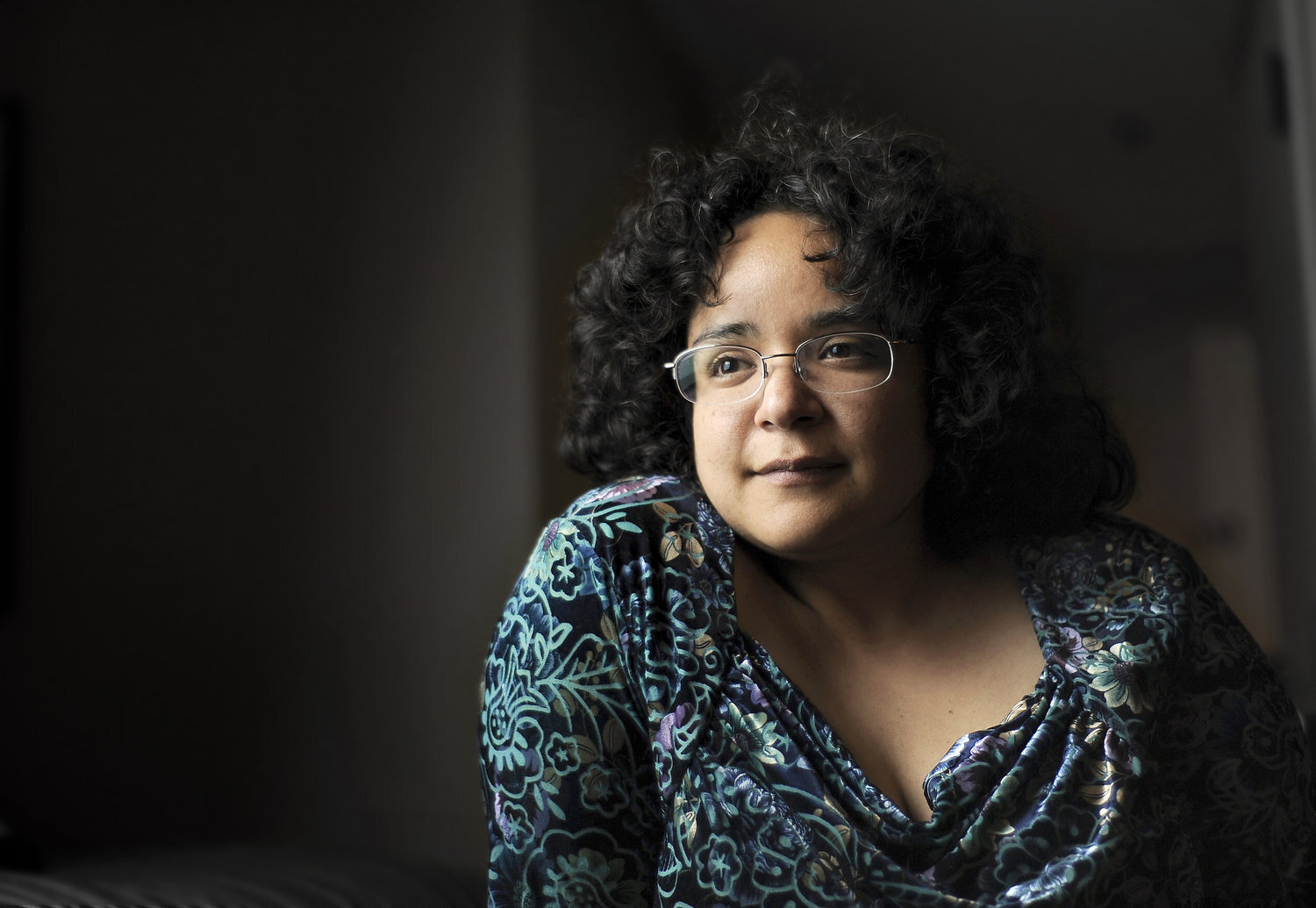Fluency
by Gabriela Lena Frank
I'm a conflicted Facebooker, like many. But I confess that its "memories" function pulling up old posts from the past gives me, from time to time, a jolt of recognition. I remember her.
This memory strikes me for pulling together a few of my different pieces — My authentic disabled self as it crosses with my authentic Latina self. Adapted from a post two years ago:
"This morning, had a great chat in Facebook Messenger with one of my cousins in Perú who I'm very fond of, someone who helped me greatly on my first trips to my mom's homeland as I stumbled around clumsily, trying to get my cultural footing years ago. I was telling her about my Academy, the work we are trying to do, and the serious ethics we uphold ranging from meeting our deadlines, engaging in "arts citizenship," learning from mentors who take them seriously and will share personal experiences, moderating substance intake so that we have a present mind for our workshops (we're in wine and weed country, after all), not discriminating in any way whatsoever, and more... I know that I've put into place all of these guidelines after a lifetime of observing what seems to create the best possible scenario for music-making that is productive and humane, both.
In typing out my side of the conversation in Spanish with a sprinkling of Quechua, I was also thinking about how while I've been belittled, in a thousand small ways, for being of Latin American ancestry here in the States, I'm occasionally attacked for not being Latin American "enough"... My cousin is not such a person, gently correcting my Spanish where I make mistakes, and kidding me that I'm much better at Spanish in "chats" than I am in actual spoken conversation. (I have no accent but my speech comprehension is faulty.) It's such a contrast to having been told, on a few occasions in my life, to not claim a connection to "true" Latin Americans until I can verbalize Spanish fluently.
Aside from the fact that millions of Latinx folks grow up with English as their first language and are beautifully whole even while facing prejudice on multiple fronts, learning English was a concerted effort on my part. Born with a hearing loss, I didn't hear true sound nor start to speak until I was five; and I was in speech therapy classes for a number of years after that. I can't hear consonants well but speech therapy, and a very persistent Mark Twain scholar dad, taught me how to produce those sounds. (I still have a tiny speech impediment and if I've not been wearing my hearing aids for a couple of days — like after sequestering myself in my studio to meet a composing deadline — my speech gets pretty funny, like a brown lady Elmer Fudd.) In spite of missing about 50% of my native English that I hear in speech, I'm adept at filling in the gaps, using my perfect pitch and recognition of common intervals between syllables (most people use a minor third in "to-MOR-row," for instance) as well as context and a vocabulary that encompasses the most obscure words (again drilled into me by Dad when I was a kid). And in conversation, while my brain is in the immediate past, filling in the holes of what I just lipread/heard, it's also furiously digesting what's being said in the present, and anticipating what's to come in the immediate future. In overdrive, always.
These are all pretty common survival tactics for folks with congenital high moderate/low profound loss like mine, i.e., a few percentage points away from the level of loss exhibited by members of the Deaf community (an entirely different experience), or even those who acquired their hearing loss later in life rather than from birth (also quite different). Support forums can be funny and poignant both, as one reads the strategies of folks, many of them brilliantly successful and even public. Personally, it's particularly poignant for me to read about other children of immigrants with threads of multiple languages in the household, and the difficulty of mastering conversational fluency. The strategies we hearing-impaired multi-cultural/multi-lingual folks have with English, hard-won and precious both, don't translate as well to cousin tongues and we have to dig deep to believe in our own cultural ownership.
Music has been my most potent route to such ownership. And I'll keep doggedly working on my non-English conversational skills. I do absolutely love the sound of Spanish and Quechua, and compose my best songs in those languages, not in my native English. Honestly, heritage works in the most mysterious, beautiful, luminous, moving ways... No?"
Gabriela Lena Frank is the director of the Gabriela Lena Frank Creative Academy of Music. Included in the Washington Post's list of the 35 most significant women composers in history (August, 2017), Gabriela was born in Berkeley, California. Winner of a Latin Grammy, she has composed for leading orchestras and worked with luminaries like cellist Yo Yo Ma, soprano Dawn Upshaw, the King’s Singers, and the Kronos Quartet. She also is a passionate believer in service, and has brought her love of music into hospitals, schools, and prisons. Learn more on Gabriela's bio page.
